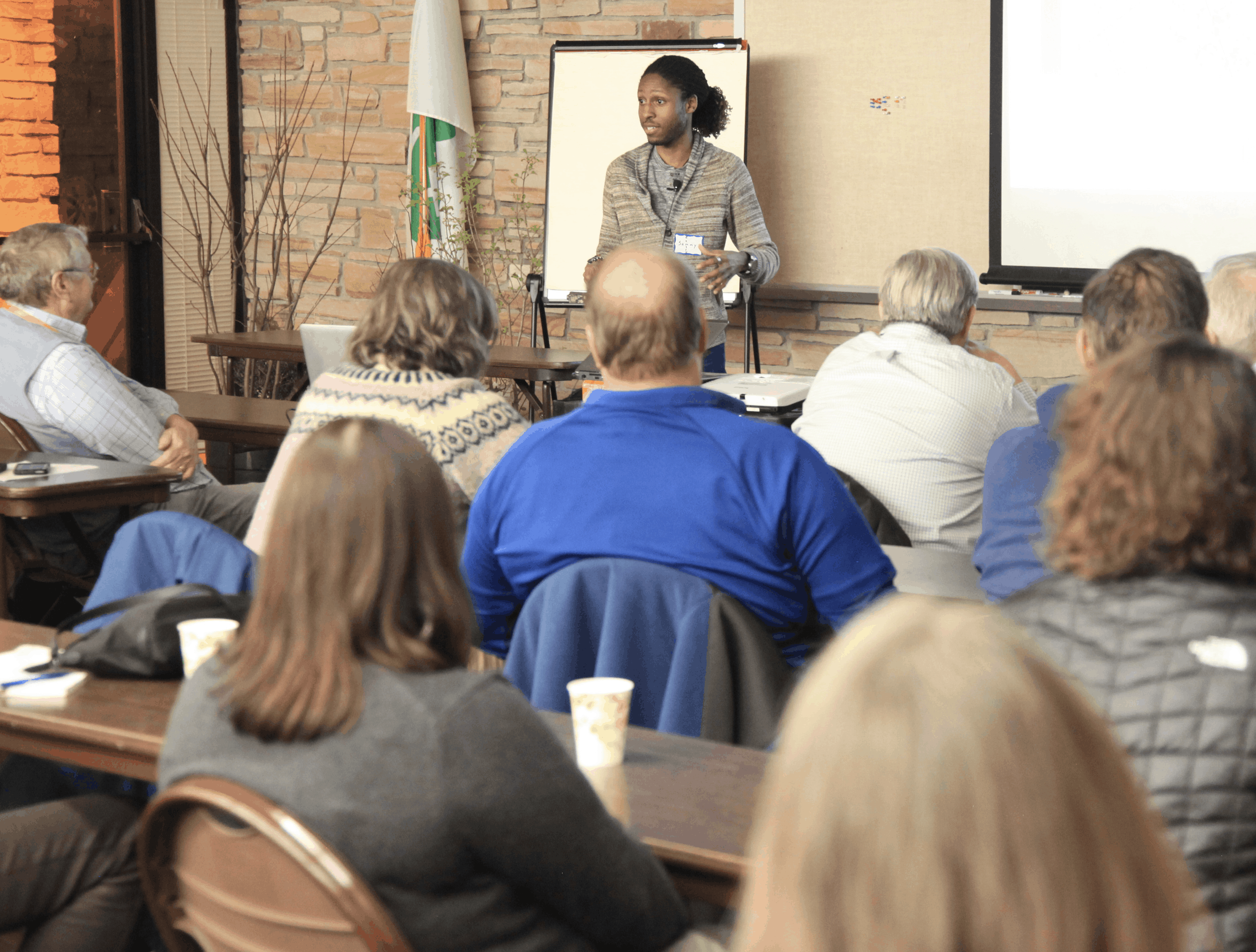by Leon Vandenberg
I have been very impressed with our monthly meetings this year. Not only do we have a new venue for the meetings, as we now are able to hold them at the Montgomery Agricultural History Farm Park in Derwood, but we have also had excellent speakers. This move was just in time, as our growing meeting attendance meant that we outgrew the Brookside Nature Center. We now have more parking, a larger meeting room, a kitchen, and a more centralized location for our members. Pam Hepp has been scheduling excellent speakers. After each meeting members tell me that it was one of the best.
We started the year with Karla Eisen. (CLICK for bio) Karla has worked with her club and others in showing them how to be self-sustaining by creating nucleus hives. The clubs then offer them at reduced cost to their new beekeepers. Wouldn’t it be great for MCBA to be able to support our new beekeepers with a nucleus hive to start their beekeeping after they take our short course? Just a thought now but a future possibility.
In February, who could forget Sammy Ramsey (CLICK for bio) and his presentation on the Varroa Mite? Probably no one is doing more research on varroa destructor than Sammy. What is scary is that there is another, even smaller mite on the horizon that may be even more devastating. Sammy has been involved with research on this mite already and is looking for support for his research in Viet Nam. Check out his Go Fund Me page (Click HERE), if you wish to participate.
Our March meeting was a panel of three members, Charlie Brandts, Mary McQueen, and Mark Thiessen. (CLICK for bios) This was a chance for members to ask questions on beekeeping and beekeeping problems. The questions kept coming and the panelists were excellent. This was one meeting where I had to actually say, “Sorry folks, but it’s time to wrap this up and go home.”
April was “Planting for Pollinators.” Lisa Kuder (CLICK for bio) from the Maryland Bee Lab spoke about planting for pollinators, both at home and on roadsides. Lisa did a great job. She explained her research with the Maryland Department of Transportation to create pollinator highways. We are seeing many more roadsides with native plants due to smarter, pollinator-informed mowing schedules and planting practices. At home, Lisa advised mowing the grass every two weeks, not every week, and not every 3 weeks. This lets non-grass plants in the lawn blossom, without letting the grass get so high bees cannot get to the flowers. I was originally drawn to beekeeping in my search for pollination in my garden. I also love to see the various pollinators for the flowers I have around my yard. I totally enjoyed this. People are always asking me what to plant to help the bees, and I send them to our website’s bee-friendly database (click HERE)
Judging by post-meeting comments, Dave Clark (CLICK for bio) and his OTS (On The Spot) queen raising energized a lot of members. (CLICK to DOWNLOAD Dave's PowerPoint presentation)Dave doesn’t buy bees. He showed us how to raise new colonies with local queens and in the process sustain the apiary. His method does not include grafting, nicot system, starter colonies, finishing colonies, or queen castles. For the small beekeeper this was fantastic. He showed us how to raise a nuc after the honey flow, build it up throughout the Fall and have it ready to produce lots of honey in the Spring. He also gave us insights on how to prevent hives from swarming by removing excess bees in the Spring and making a nucleus hive from the bees you removed. Practice makes perfect and this is an excellent way for the small beekeeper to sustain his apiary. We are already in discussion with Dave about doing a hands on demonstration in our apiary in Spring of 2020.
We have some very good presentations already scheduled for our monthly meetings. I hope to see you at each one. I want to thank Pam Hepp for all she does in getting the speakers for these monthly programs and for all the educational outreach she coordinates - like Earth Day presentations. (CLICK to see Volunteering Opportunities). I know to do these takes the effort of many MCBA members. So, a big 'Thank you!' to all who helped.
Leon Vandenberg, President
Montgomery County Beekeepers Association

